The Alberta government released the first draft of a plan to save the province’s woodland caribou after the species’ continued population decline since 1900.
Caribou are a distinctly Canadian species. From their white rumps and tails to their brown coats and wide muzzles, most people recognize the large-antlered mammals as the wilder looking cousins to Santa’s reindeer!
According to the Alberta Wilderness Association’s website, woodland caribou have “historically occupied two-thirds of (Alberta) ranging from the west-central foothills to the boreal forests of the north.”
Woodland caribou (Rangifer tarandus caribou) are classified as a threatened species both provincially and nationally. A 2010 Alberta Wildlife Status Report says that although predation by wolves is the primary cause of caribou death in natural conditions, ongoing declines in the population are likely the result of human-caused habitat alteration.
The province has released a draft to save Canada’s beloved caribou. The plan targets two major herds: the Little Smocky and A La Peche caribou ranges.
According to the draft, released by Alberta Environment and Parks (AEP), current habitat conditions in the Little Smocky and A La Peche Caribou Ranges can’t support self-sustaining caribou herds.
So what does the future hold for the woodland caribou? At this point, it’s still hard to tell. One thing is for certain: Albertans, and for that matter, all Canadians, should care about the future of the woodland caribou. A world that watches as a (more than) thousand-year-old species disappears is not a world doing its due diligence to the animals that call it home.
The detailed “Little Smocky and A La Peche Caribou Range Plan” was released on June 2 and can be found by clicking here or visiting aep.alberta.ca.
AIWC advocates environmental stewardship and knowledge in the next generation by educating children and adults alike on how their actions impact the environment on a larger, provincial scale. This is achieved through public education and a wide range of Wildlife Education Programs.
To book an education event, complete a Wildlife Education Program Request.
To help support AIWC, donate or become a member today.
IT ALL COMES DOWN TO THIS
“We don’t own the earth. We are the earth’s caretakers. We take care of it and all the things on it. And when we’re done with it, it should be left better than we found it.” ― Katherine Hannigan, author.
By: N. Grossman, Volunteer Writer.
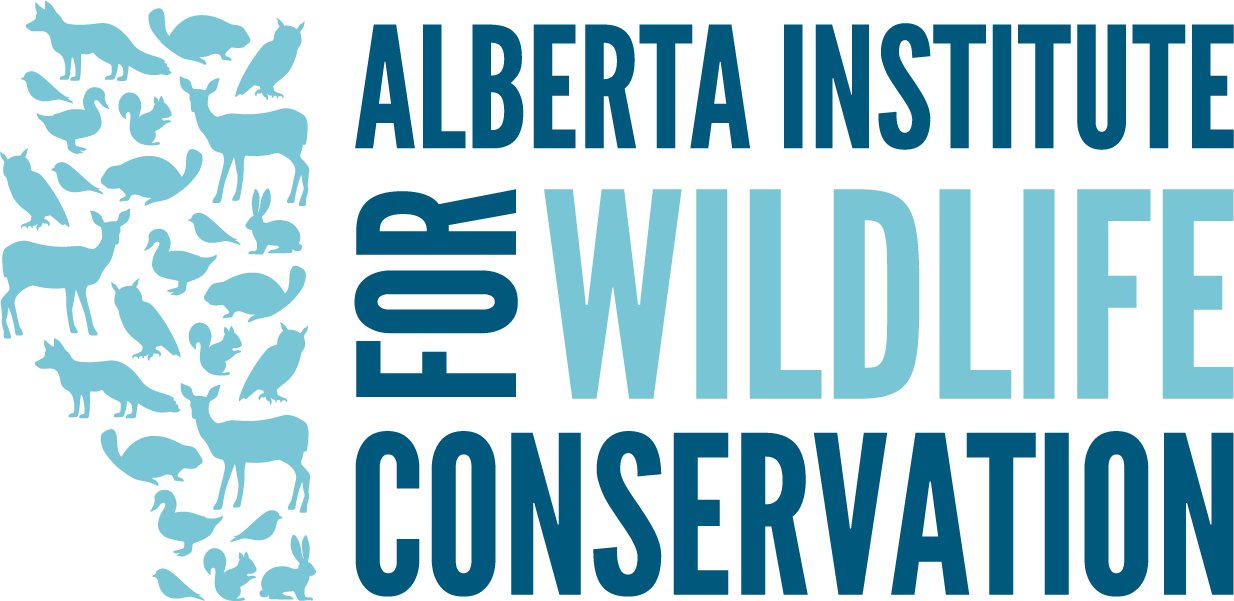
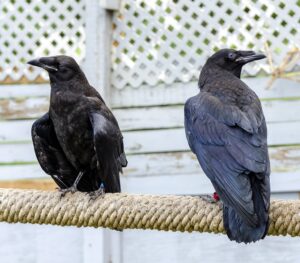
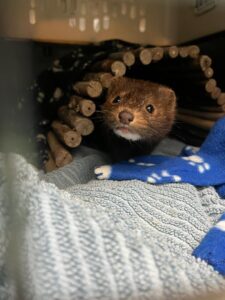
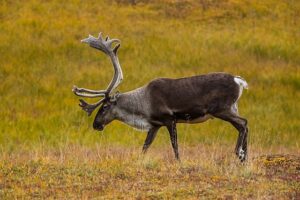

2 thoughts on “Can Alberta save the caribou?”
“I am an old(er) biologist and have been on the caribou stump of sorts for decades, but with particular interest since 2002 when the scientists at the U of A started pointing their finger unequivocally at wolves as the proximate cause of caribou declines tied to consequences of habitat alteration. This highly biased research (biased by design) has subsequently led to the gunshipping of thousands of wolves, strychnine poisoning of other ‘sacrificed’ ungulates to kill scavenging wolves etc with essentially no meaningful results despite publications by a government and university researchers to suggest otherwise.
I was a moose ecologist in Saskatchewan in the 1970s-80s and believed that low levels of moose calf survival in one range was due to black bear predation on calves shortly following birth. Published research on that in mid 80s that resulted in a doubling of calf survival. There is only circumstantial evidence in Alberta that wolves are the cause of very low caribou calf survival i.e. there is one documented case of a wolf killing a neonate in Alberta, and recent STRONG research across Canada (Manitoba, Quebec, Newfoundland and Saskatchewan) that irrefutably implicates bears as the primary cause of neonate mortality leading to the vulnerability of woodland caribou. I do not suggest that wolves do not kill caribou, particularly a few adults, but huge expenditures to effect the slaughters, combined with ridiculous expensive efforts related to seismic line restoration and plans to construct zoo-style enclosures for caribou do not make sense.
To this end, I spent a few years working on a deterrent designed to discourage marauding bears, and in controlled closed trials believe we have a ‘highly effective memory inducing deterrent’ that will discourage bears on calving grounds from killing calves, thereby giving caribou some assistance to withstand the effects of higher levels of predation by wolves on adults. Our approach involves NO KILLING and is ridiculously inexpensive compared to the status quo approaches.
I encourage interested people to visit academia.edu and read an exhaustive analysis I produced in 2016 “Woodland Caribou Management Crisis How Best to Proceed with Woodland Caribou: Get Back to Basics?” or an updated 2018 powerpoint available on my website teams-ltd.com complete with videos. These sources will paint a black and white picture of how ignorance and bureaucracy combine to produce ineptitude and introduce high potential costs to Alberta taxpayers and DO NOT help woodland caribou- period in the slightest.
Most interesting that when presented with my option that was based on reasonable science, and an opportunity to proceed with field trials years ago completely funded by industry, a government spokesperson that was on of the architects of the wolf culling stated: “Not Interested” – Go Figure???
Like how do you get a room full of wildlife scientists together to essentially mimic the same stuff for 20 years – only now are people in other jurisdictions presenting a very different picture of life in the boreal forest- SAD
Seems like there is an effort to bump all the caribou off so Countys can reap the timber and punch holes in the ground for oil $$$. So the request is to get rid of the caribou, what a sad state the world is in. Boneheads are leading the show.